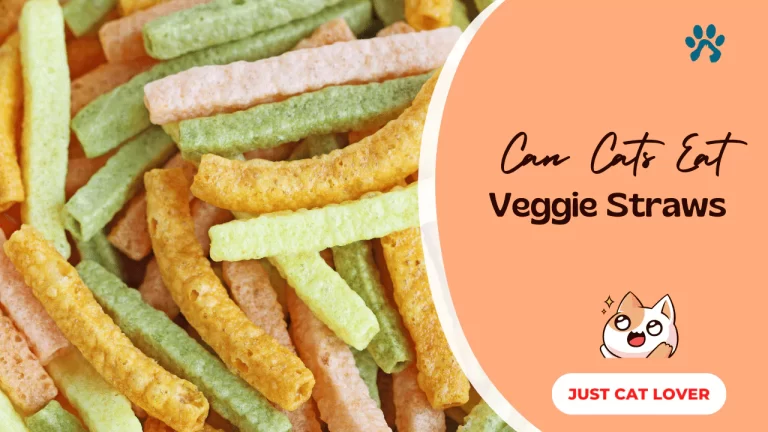No, cats should not eat veggie straws. While veggie straws may seem like a harmless snack for humans, they can pose potential risks and lack nutritional value for cats. There are much better alternatives when looking for treats and snacks to feed your feline friend.
Are Veggie Straws Safe For Cats?
Potential Risks and Side Effects
Veggie straws contain a number of ingredients that may cause gastrointestinal upset in cats. The main ingredients in veggie straws are potato, potato starch, and flour made from corn and/or rice. Cats’ digestive systems are not equipped to properly digest significant amounts of starch, so eating veggie straws could potentially cause diarrhea, vomiting, gas, and bloating.
Additionally, veggie straws are often heavily seasoned with onion powder, garlic powder, salt, and other spices. Onions and garlic are toxic to cats and can damage their red blood cells if ingested, even in powdered form. Excessive salt is also unhealthy for cats and can lead to vomiting or sodium ion poisoning in large amounts.
Lack of Nutritional Value
While veggie straws provide carbohydrates, they lack balanced nutrition for cats. Cats are obligate carnivores, meaning they need a meat-based diet rich in proteins and amino acids. Veggie straws contain little to no protein and do not provide cats with the crucial nutrients they need. A diet consisting mostly of starches and carbohydrates could lead to malnutrition.
Ingredients to watch out for
When checking the ingredient labels of veggie straws, watch out for:
- Onion powder
- Garlic powder
- Excessive salt and sodium
- Starch-heavy ingredients like potatoes, corn, rice
These common veggie straw ingredients can cause adverse reactions and should be avoided when feeding cats.
Alternatives to Giving Your Cat Veggie Straws
Rather than feeding veggie straws, consider some healthier, cat-friendly alternatives:
Feline-friendly treats and snacks
There are many commercial treats made specifically for cats that are nutritionally balanced. Look for treats made with meat as the first ingredient and minimal additives. Some examples are freeze-dried chicken or fish treats, meaty dental sticks, and meat jerky treats.
Natural vegetables for cats
Some vegetables are safe for cats to eat in moderation. Try bits of steamed broccoli, green beans, carrots, or peas. Never feed onions, garlic, grapes, raisins or chocolate. Introduce new foods slowly.
Commercial cat treats
High-quality commercial cat treats also make an easier alternative than sharing human snacks. Look for grain-free options with no onion, garlic, artificial flavors, or excessive carbohydrates. As with any treats, give them in moderation.
Considerations When Feeding Cats Human Snacks
Importance of a balanced diet
Treats like veggie straws should not make up the bulk of your cat’s diet. They need a balanced feline diet rich in animal proteins. An occasional veggie straw would likely not harm an otherwise healthy cat, but regular feedings could lead to issues.
Consulting with a veterinarian
As obligate carnivores, cats have specific nutritional needs. Always check with your vet before sharing new foods. They can advise you on diet, portion sizes, and whether a human snack would be safe or unhealthy for your individual cat.
Portion control
Any human snacks given to cats should only be fed in tiny amounts. Large portions or daily feedings can unbalance their diet. Limit snacks to occasional, small treat-sized portions – broken or cut into tiny pieces.
Conclusion
Veggie straws make an unsuitable regular snack for cats. The vegetable and starch content offers little nutrition, and the seasonings may cause adverse reactions. Stick to high-protein cat treats and foods approved by your veterinarian. With a balanced diet and proper portion control, the occasional veggie straw given as a tiny treat is unlikely to harm an otherwise healthy cat. However, they lack nutritional value and remain an unnecessary risk. For a satisfying crunchy cat snack, look for more appropriate feline-friendly options.







